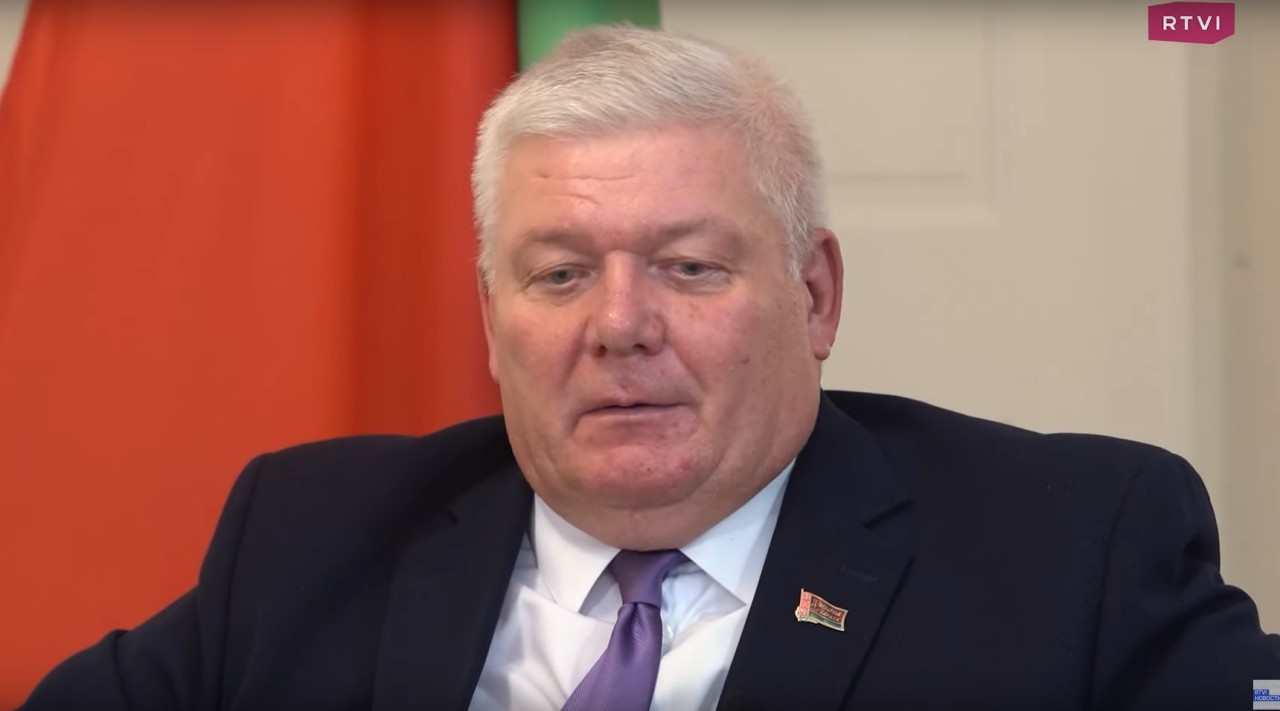Desire vs. duty: Regime stays loyal to Russia’s anti-Western agenda
 The situation has not changed
The situation has not changed
Minsk’s actions continue to demonstrate a lack of independent foreign policy, with moves that align with Russia’s geopolitical strategy towards both Ukraine and the West. This is evident in the refusal to engage in the summit on Ukraine without Russia, overt negotiations with the leadership of the Russian-occupied Ukrainian regions, and the proposal to neighbours to “return to cooperation” on countering illegal migration despite increased migration pressure.

Ambassador of Belarus to Switzerland Aliaksandr Hanevich outlined the government’s stance on Belarus’ involvement in the upcoming “peace summit” on Ukraine. He stated that Belarus would only participate if Russia was also present. Minsk has reservations about the participation of the United States and European states in the summit that excludes Russia, given Russia’s pivotal role in resolving the conflict.
Belarus’ representatives have consistently maintained that the resolution of European or Eurasian security concerns without the involvement of Russia and Belarus is impractical and unlikely to succeed. Concurrently, the regime insists that Belarus be included among the parties engaged in the negotiations. The rationale for this demand is based on the fact that Belarus has more than 1,200 kilometers of border with Ukraine and has been actively involved in resolving the conflict since 2014, hosting negotiations between Russia and Ukraine. Furthermore, Belarus has facilitated three rounds of talks between the two countries since 2022. The ambassador considers the discussions to have been both “successful and effective.”
Minsk reiterates its commitment to resolving the conflict as expeditiously as possible. It advocates for a ceasefire and a peaceful resolution.
The statements were made in the context of Aliaksandr Lukashenka pointedly receiving Denis Pushilin, the head of the self-proclaimed Donetsk People’s Republic, which was established by the Russian Federation on the occupied territory of Donetsk region in Ukraine. By indicating its willingness to collaborate with Ukraine on the same terms as the Donetsk Republic, the regime is demonstrating solidarity with Russia and compromises Ukraine’s territorial integrity.
The Belarusian Foreign Ministry has proposed that neighboring countries resume collaborative efforts to address the issue of illegal migration. The Ministry emphasized the necessity for a multinational approach, rather than relying on unilateral measures such as the construction of physical barriers or the use of force. Minsk views the introduction of border control measures by Germany at all land borders for the next six months as evidence of inefficiency on the part of the governments of Poland and the Baltic States in ensuring migration security in the EU.
Despite alleged repeated proposals from the Belarusian authorities to neighboring EU member states to resume “normal professional cooperation” on counteracting illegal migration, a positive response has yet to be received. Apparently, as a demonstration of the seriousness of Belarus’ intentions, the flow of illegal migrants was defiantly on the increase in the run-up to the declaration. On 13-15 September, more than 300 individuals attempted to cross the Belarusian-Polish border illegally.
This rhetoric is aimed at justifying Minsk’s inaction against the background of China’s demand that the Belarusian authorities normalize relations with the West, and with Poland in particular. Despite the advantages of engaging in peace negotiations on Ukraine and normalizing relations with Poland by halting migration pressure, the regime does not merely reflect the Kremlin’s stance but rather acts as a promoter of the Russian line in foreign policy. Given that the Kremlin is not considering participation in the new peace summit on Ukraine or reducing tensions on the western border of the Union State of Belarus and Russia, it is unlikely that there will be a change in the regime’s foreign policy.
Subscribe to our newsletter




Situation in Belarus
Constitutional referendum: main consequences


 Video
Video
How to count the political prisoners: are the new criteria needed?


 Video
Video
Paternalism In Decline, Belarusian Euroscepticism, And The Influence Of Russia


 Video
Video












